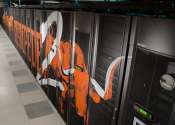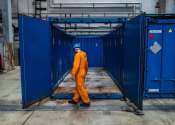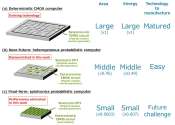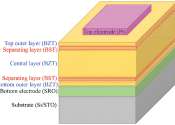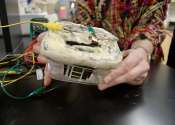In physics, energy (from the Greek ἐνέργεια - energeia, "activity, operation", from ἐνεργός - energos, "active, working") is a scalar physical quantity that describes the amount of work that can be performed by a force, an attribute of objects and systems that is subject to a conservation law. Different forms of energy include kinetic, potential, thermal, gravitational, sound, light, elastic, and electromagnetic energy. The forms of energy are often named after a related force.
Any form of energy can be transformed into another form, but the total energy always remains the same. This principle, the conservation of energy, was first postulated in the early 19th century, and applies to any isolated system. According to Noether's theorem, the conservation of energy is a consequence of the fact that the laws of physics do not change over time.
Although the total energy of a system does not change with time, its value may depend on the frame of reference. For example, a seated passenger in a moving airplane has zero kinetic energy relative to the airplane, but non-zero kinetic energy relative to the Earth.


